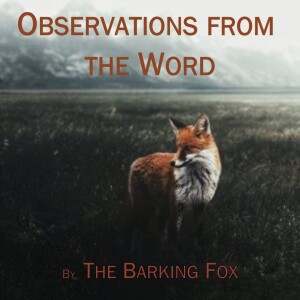

How do we define right and wrong if there is no absolute truth? We complain about moral relativism, but only until we realize that the existence of absolute truth means there is a standard by which we all can be judged as right or wrong, good or evil, righteous or wicked. Do we really want such a definition, or do we want it only when we can use it to justify ourselves as we point out the wrongness of others?
Genesis 18:1-22:24; 2 Kings 4:1-37; Ezekiel 16:48-52; John 18:37-38; 1 Corinthians 2:14-16
Click here to download a transcript of this podcast: Relative Judgment
Music: "Hashivenu (Turn Us Back),” Samuel and Benjamin Wearp, 2023. The full recording is available at https://youtu.be/rlFi8yNEc-U?si=zcqHh5jQIoYkSgLC.
Photo by Daryl Cheng, March 6, 2008, via Flickr.
No comments yet. Be the first to say something!